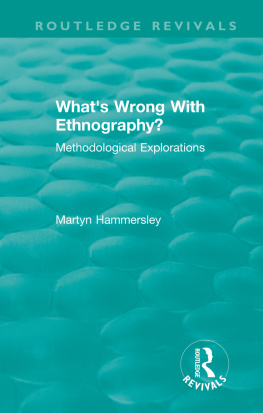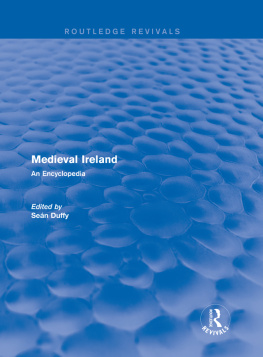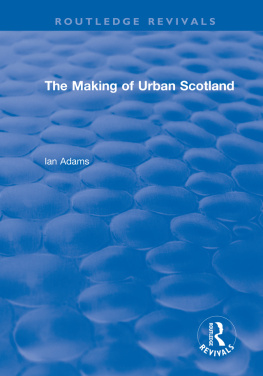Routledge Revivals
Key Settlements in Rural Areas
The problems of providing essential services in a constrained economic climate, and of conserving the rural environment whilst protecting rural people, are of immediate importance. This book, first published in 1979, was the first major piece of published research on the topic of rural settlement planning. It examines in detail the history and theory behind key settlement policies, and their practical application within the British rural planning system. Using Warwickshire and Devon as two very different case studies, Paul Cloke measures the outcome of settlement planning and discusses the wider implications of the concentration-dispersal debate. This reissue will provide essential background for students of rural and social geography, and rural sociology and economics.
Key Settlements in Rural Areas
Paul Cloke
First published in 1979
by Methuen & Co.
This edition first published in 2013 by Routledge
2 Park Square, Milton Park, Abingdon, Oxon, OX14 4RN
Simultaneously published in the USA and Canada
by Routledge
711 Third Avenue, New York, NY 10017
Routledge is an imprint of the Taylor & Francis Group, an informa business
1979 Paul Cloke
All rights reserved. No part of this book may be reprinted or reproduced or utilised in any form or by any electronic, mechanical, or other means, now known or hereafter invented, including photocopying and recording, or in any information storage or retrieval system, without permission in writing from the publishers.
Publisher's Note
The publisher has gone to great lengths to ensure the quality of this reprint but points out that some imperfections in the original copies may be apparent.
Disclaimer
The publisher has made every effort to trace copyright holders and welcomes correspondence from those they have been unable to contact.
ISBN 13: 978-0-415-71455-6 (hbk)
ISBN 13: 978-1-315-88259-8 (ebk)
KEY
SETTLEMENTS
IN
RURAL AREAS
for Viv
KEY
SETTLEMENTS
IN
RURAL AREAS
Paul J. Cloke
METHUEN
First published in 1979 by
Methuen & Co. Ltd
11 New Fetter Lane, London EC4P 4EE
Published in the USA by
Methuen & Co.
an associate company of Methuen Inc.
733 Third Avenue, New York, NY 10017
1979 Paul Cloke
Typeset by Inforum Ltd, Portsmouth
Printed in Great Britain at the
University Press, Cambridge
All rights reserved. No part of this book may be reprinted or reproduced or utilized in any form or by any electronic, mechanical or other means, now known or hereafter invented, including photocopying and recording, or in any information storage or retrieval system, without permission in writing from the publishers.
British Library Cataloguing in Publication Data
Cloke, Paul
Key settlements in rural areas.
(University paperbacks).
1. Regional planning England
I. Title II. Series
711.30942 HT395.G7
ISBN 0416719104
ISBN 0416719201 Pbk
Contents
In 1957, John Saville admitted that the rural planner is groping in a fog of ignorance. Much of this deficit in rural knowledge has been due to an urban bias in planning, research and problem-solving, necessitated by the speed and scale of urban growth. However, there has been a concomitant period of post-war planning of the rural environment which has developed without the basic research inputs to policy initiation and monitoring. Thus it is that major planned changes have taken place in the countryside in an atmosphere of inexperience on the part of the planners and ignorance on the part of large sections of the general public.
The key settlement policy may be regarded as the principal agent of planned change in post-war rural Britain. Rural settlement policies have usually embodied major elements of the key settlement concept in one guise or another and yet this fundamental part of the rural planning machinery has been very much a part of the fog of ignorance of which Saville spoke. The planners themselves have largely been working in the dark, with little idea of the future ramifications of the policy that they were introducing. Rural people, too, have exhibited a low degree of perception of the planning policy which potentially can cause them direct benefits or disadvantages.
Only recently has the philosophy and practical application of the key settlement policy incurred criticism, but now the floodgates have been opened a stream of disapproval has flowed across the pages of rural planning texts and journals. The total blind faith in the key settlement concept has been replaced by an equally benighted reliance on any policy or nomenclature which is able to circumvent the key centre philosophy. In addition, many respected commentators have recently expressed the opinion that the key settlement approach has been short-sighted and that its continued adoption would be likely to prejudice the long-term health and stability of rural settlements. As a consequence of these reactions, the concentration versus dispersal in rural planning debate has been initiated, the outcome of which will have fundamental implications for the future study and application of geographical planning in rural areas.
Here, then, we have a very relevant section of the fog of ignorance which demands detailed study. At the outset, several questions beg for an answer. What is a key settlement policy? This type of rural planning has been operational now for twenty-five years or more, and yet there are many who would be stretched to define exactly what the unique qualities of the concept are. What is the theoretical background to key settlements if any? It is important to know how and why the policy was first introduced so that comparisons are available with today's rural circumstances. To what extent have key settlements been used and how do policies differ from one to another? Knowledge of key settlement policy implementation will provide vital spin-off for future rural settlement policies.
All these questions are tackled in the first three chapters of this book and therefore form separate inputs into the major objective of this study, namely how well do key settlements work in different types of rural area? Only by assessing key settlement performance at county level and below can we adequately decide the future role, if any, that this policy should play in the future of the countryside. which link theory and practice into a statement concerning the value and future potential of key settlement policies in different types of rural area.
The book adopts the basic premise that planners ought to arrest the trends of depopulation in remoter rural areas and equally that the concept of conservation in pressured rural areas is one which is worthy of planning consideration. There are those who would advocate a strict laissez-faire approach to rural planning but the author remains unconvinced that such a strategy would be a beneficial one, and he is unrepentant for pointing this study of key settlements in a positive planning direction.
Neither do I make any apology for treating this subject from a geographical viewpoint. Spatial perspectives may be thought dominant within the book but in many ways the themes of spatial discrimination or spread of opportunities form the nub of key settlement policies, and therefore a geographer's approach is certainly not out of place. The quantitative nature of the case-studies is equally held to be justifiable in that objective policy decisions concerning the future of rural areas will require a considerable amount of evidence to be collected in as scientific a manner as possible. Some imbalances will have been caused by the narrowing of the book's focus to the situation in England and Wales. Growth centre policies akin to key settlements have been used in many countries on the continents of Europe and America and it is to be hoped that some of the conclusions reached in the British context will find application elsewhere.










